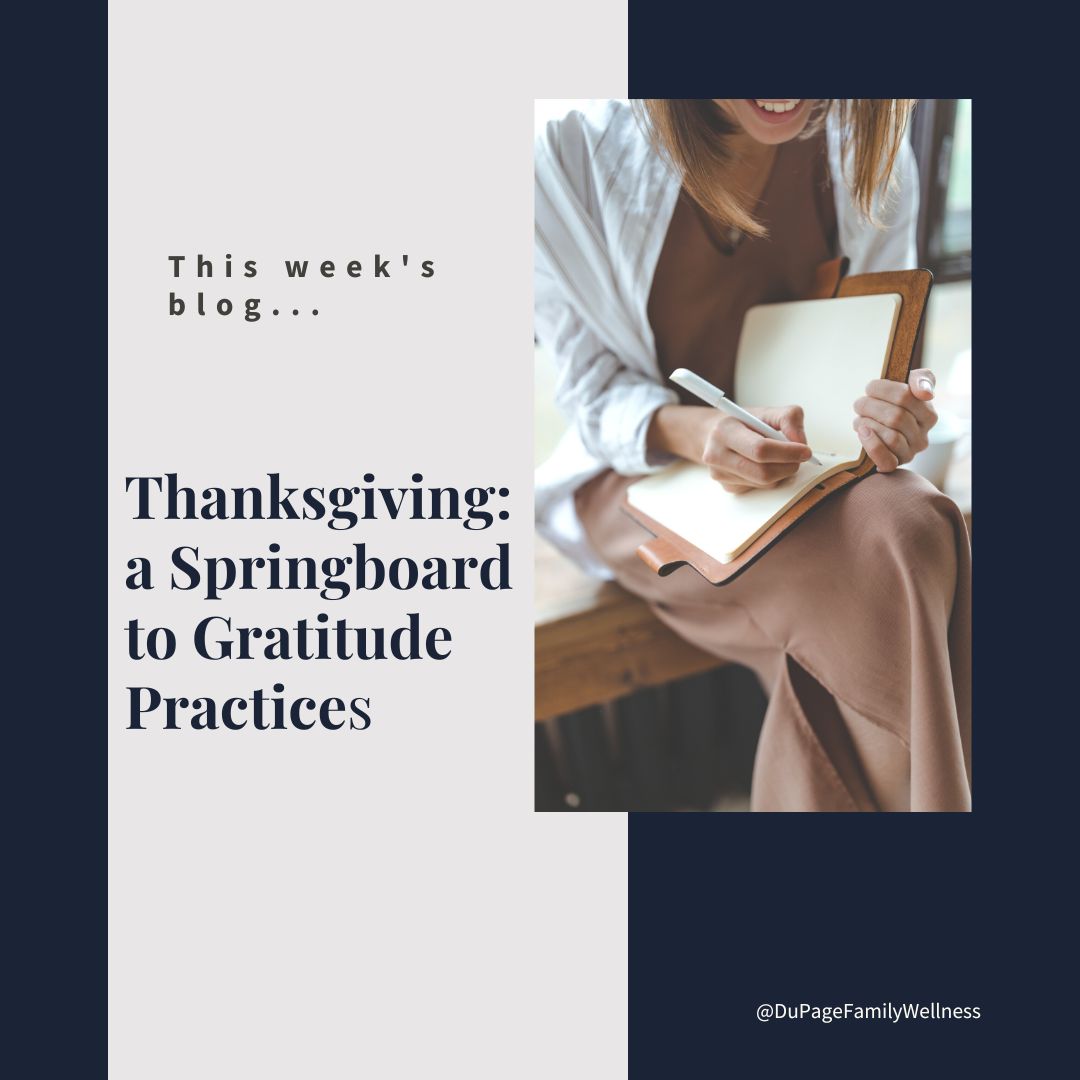 This time of year everyone is talking about gratitude. It’s great that we set time aside for it, but gratitude can be a healing practice all year round.
This time of year everyone is talking about gratitude. It’s great that we set time aside for it, but gratitude can be a healing practice all year round.
Research has found a practice of gratitude to be beneficial for your physical, psychological, and social well-being. Since it's free, does not take much time, and can be done in the privacy of your own home it may be worth developing.
A gratitude practice is different than having an "attitude of gratitude" or "looking on the bright side of things." For one thing, it is much more intentional than just being optimistic or thankful from time to time.
Let's explore the benefits of this practice and consider how to start one!
The Benefits of Gratitude
Feelings of gratitude are good for our brains, activating the hypothalamus and flooding our brains with the feel-good hormone dopamine. Some studies have found it decreased the prominent stress hormone cortisol and blood pressure while increasing heart rate variability.
Robert Emmons, the world’s leading scientific expert on gratitude, found that people who consistently practice gratitude report many physical, psychological, and social benefits such as:
Physical
- Stronger immune systems
- Less bothered by aches and pains
- Lower blood pressure
- Exercising more and take better care of their health
- Sleep longer and feel more refreshed upon waking
Psychological
- Higher levels of positive emotions
- More alert, alive, and awake
- More joy and pleasure
- More optimism and happiness
Social
- More helpful, generous, and compassionate
- More forgiving
- More outgoing
- Feel less lonely and isolated.
Brene Brown On Joy & Gratitude
Read more ...
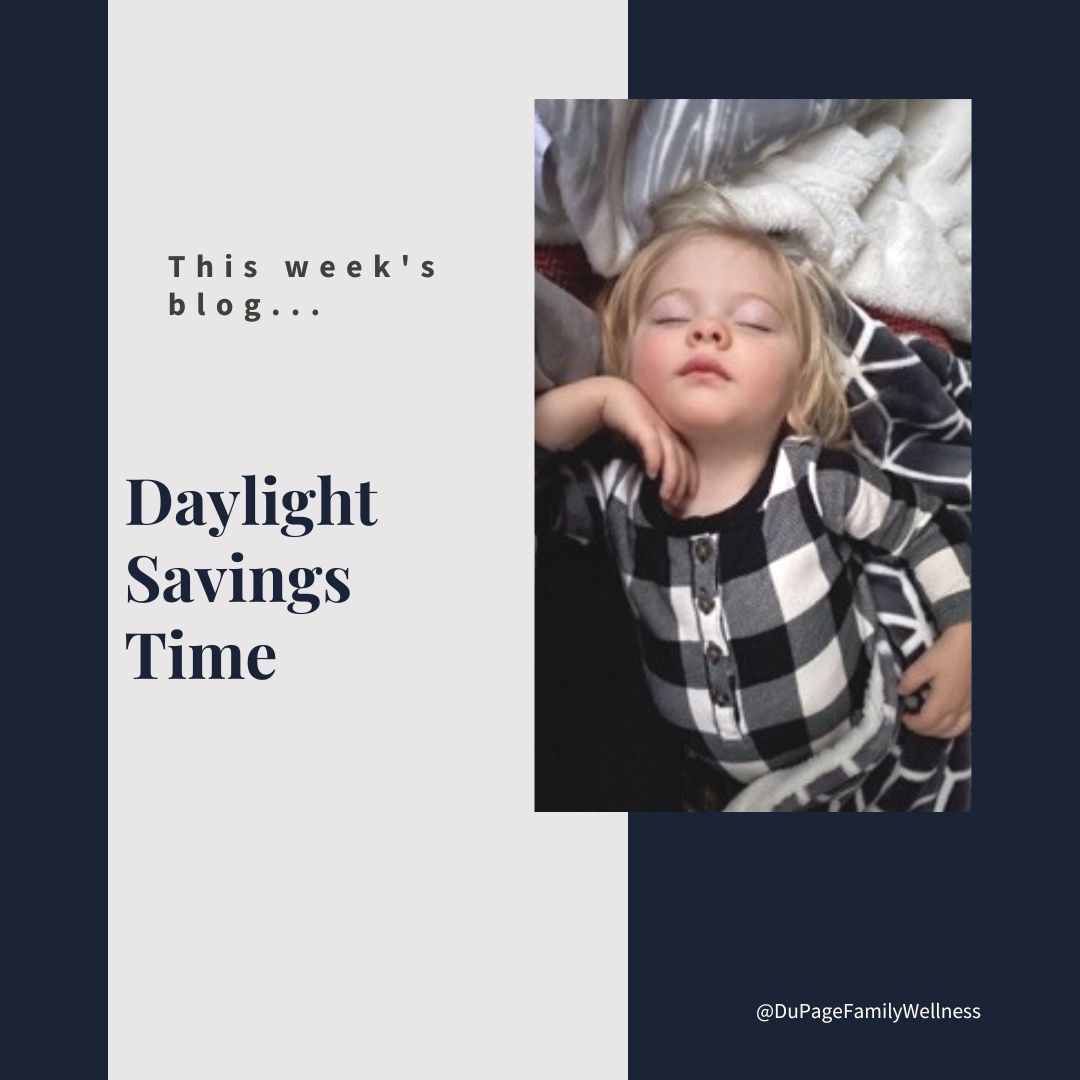 It’s that time of year again. Daylight savings time is ending, and we will be rolling the clocks back this weekend. Many people are glad that they will enjoy an extra hour in their evening, while others look forward to an extra hour of sleep.
It’s that time of year again. Daylight savings time is ending, and we will be rolling the clocks back this weekend. Many people are glad that they will enjoy an extra hour in their evening, while others look forward to an extra hour of sleep.
However, some people are not so excited about the change. For parents of little ones and those with a strong circadian rhythm, this change can be a challenge. Our bodies (and little ones) do not automatically align with the clock, especially when it is artificially changed.
If you are someone who struggles with the time change or your body simply needs to reset its circadian rhythm, there is one important piece of research-based advice I have for you. It has nothing to do with your evening and everything to do with your morning.
Let’s explore the most important thing you can do to get your sleep back on track.
Circadian Rhythm
According to the National Institute of General Medical Sciences (NIGMS), “Circadian rhythms are physical, mental, and behavioral changes that follow a 24-hour cycle. These natural processes respond primarily to light and dark and affect most living things, including animals, plants, and microbes.”
Simply speaking, it is the cycle your body goes through in 24 hours. This cycle is influenced by many things, but nothing affects it more than exposure to light and darkness. You may be thinking about light in the evening keeping you up; we all have heard to limit blue light before bed. This is an important aspect, but it’s not the most important.
You may be surprised to hear that morning sunlight is the most important factor in setting your circadian rhythm. Getting outside first thing in the morning can have a profound effect on your circadian rhythm, but it can be tricky in climates that don’t provide bright sunlight year-round.
How to Get Light
Some people are lucky to live in areas that get plenty of sunshine year-round. This isn’t true for everyone, but if you are one of the lucky ones take advantage of it. Go outside and let the sunshine on you.
In Chicago, the weather has been pretty nice lately, but soon we may have to bundle up to do this. Eventually, the sun will become less pronounced, and we may have to find other ways to get that bright light in the morning.
One way to do this is by using a light machine. It won’t give you all the health benefits, but it is a good alternative when necessary.
Read more ...
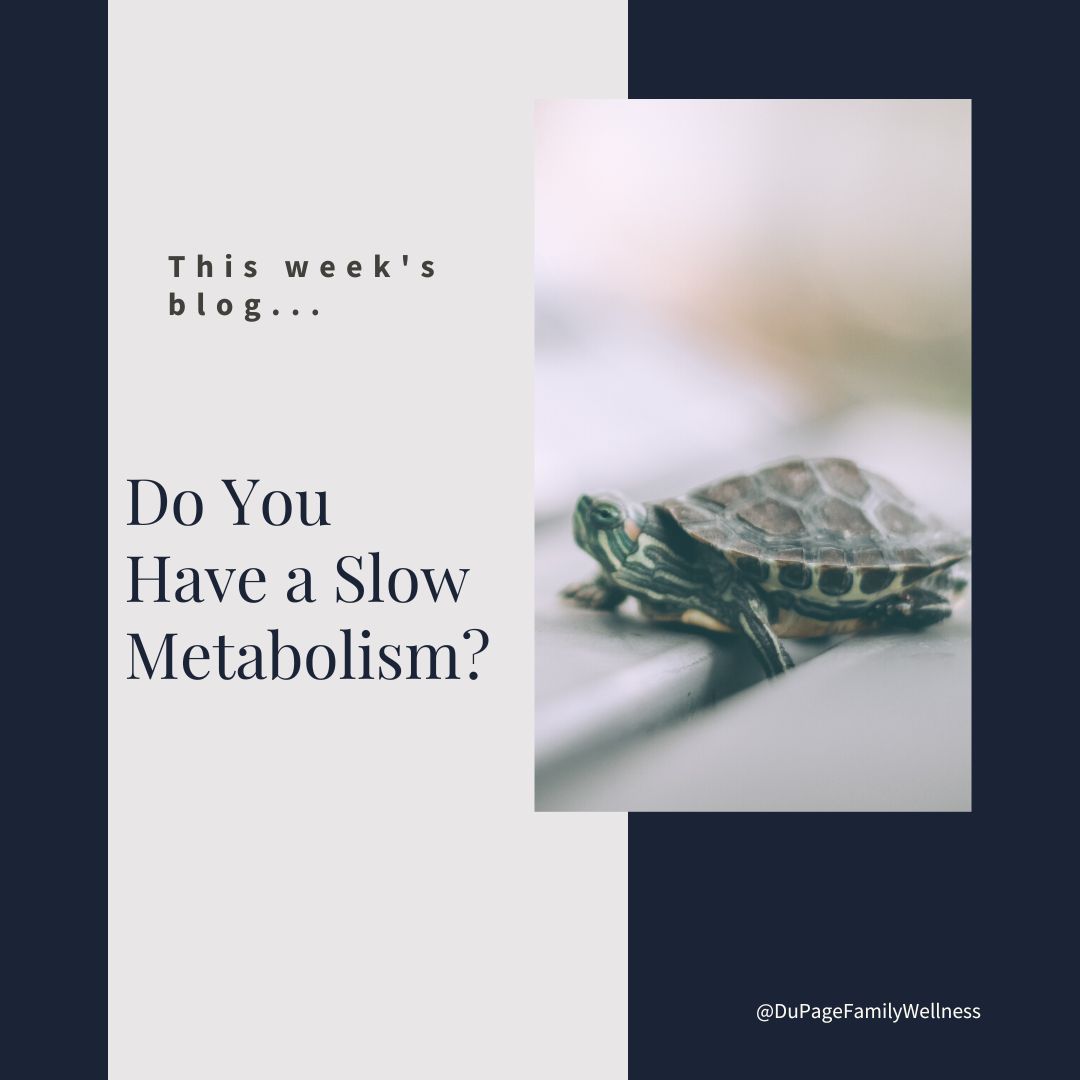 Your metabolism is the process of your body converting what you eat and drink into energy. The energy produced is responsible for everything from your movement to the automatic functions of the body.
Your metabolism is the process of your body converting what you eat and drink into energy. The energy produced is responsible for everything from your movement to the automatic functions of the body.
The metabolism works around the clock continuing its job when you are sleeping. It is necessary that things such as your circulation, digestion, and breathing continue to work through the night. This all is dependent on your metabolism.
Have you ever wondered if your metabolism is low? If so, there are a couple of tests that you can do at home to get an objective perspective. The first involves some measures of your temperature. Another will involve your pulse.
Let’s look at these simple tests that may reveal some interesting information!
Cycles of Your Temperature
Typically, your temperature will be between 97.8 and 98.6 degrees. However, it ebbs and flows throughout your day.
- little lower in the morning
- peak mid-day
- decline again in the evening
If you are cycling, it will also vary based on the phase of the cycle you are in.
- from bleed to ovulation (follicular phase) it will be a little lower (maybe high 97s).
- during your luteal phase, it will be higher (98s).
How to Measure Your Temperature
To measure your basal body temperature, keep a thermometer by your bedside. Since your temperature fluctuates throughout the day, be sure to measure it when you first wake up in the morning.
When measuring your temperature be sure to take it under the tongue. Hold the thermometer in your mouth for 2-3 minutes to warm it up before pressing the button. These steps will help you get the most accurate reading and make sure you don't get artificially low temps.
Once you have done this for three days, take the average of your temperatures. An average below 97.8 can be a sign that your body has slowed your metabolism.
Measuring Your Temperature After Meals
Another clue in checking to see if your metabolism has slowed is taking your temperatures after you eat. Your temperature should go up slightly after meals because you are metabolizing that food. If it goes down after you eat it means your food increased your stress and your metabolism isn’t working well.
Again, it is important to take your temperature under your tongue. For the most accurate read, be sure to leave the thermometer in your mouth for a few minutes before turning it on.
Read more ...
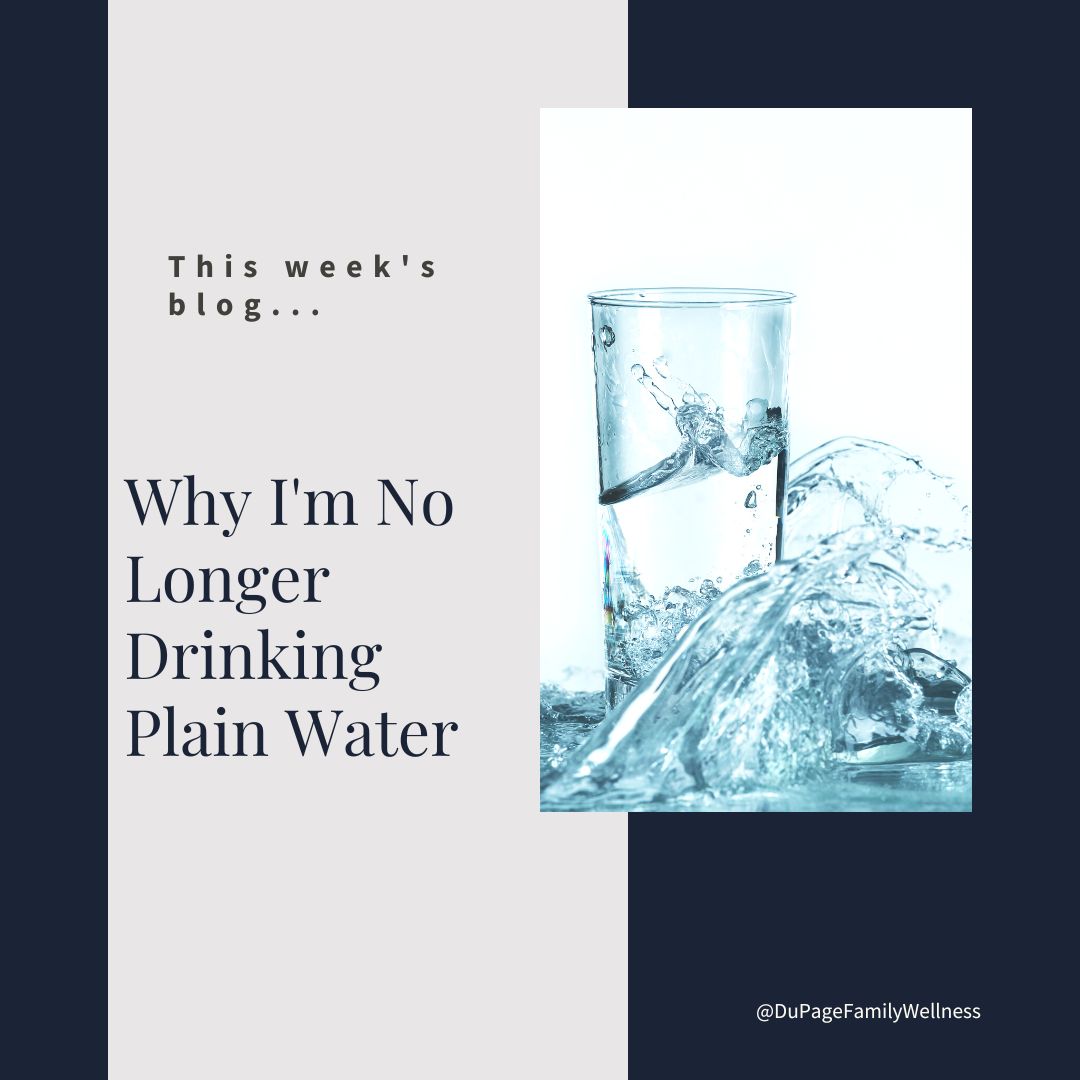 Yes, it's true. I no longer drink plain water... and yet I am the most hydrated that I've been in my life.
Yes, it's true. I no longer drink plain water... and yet I am the most hydrated that I've been in my life.
We have been told for years that in order to stay hydrated, you must drink 8 glasses of water a day. I myself am guilty of telling people to drink "one ounce of water for very 2 lbs. of body weight." Unfortunately, what you often aren't getting from this water is minerals!
Yes, you need water, but you also need all sorts of minerals. Your current water processing and filtering systems have probably stripped away most of those minerals from your water. Think about the fluids in your body. They aren't made up of straight H2O. You have a complex mixture of all sorts of minerals.
If you are drinking just plain water (especially if you have a lot of it), you can dilute those mineral-rich fluids in your body. This makes your kidneys work way harder than they need to, and you may find yourself running to the bathroom constantly to pee off all of that excess fluid.
Adrenal Cocktails
This summer I started utilizing something called an Adrenal Cocktail. After running a Hair Trace Mineral Analysis (HTMA) test on myself, I found out that my potassium levels were incredibly low and was inspired to start utilizing adrenal cocktails.
There are several ways to make an Adrenal Cocktail, a mineral-rich drink that particularly focuses on supporting sodium and potassium levels. It also contains Vitamin C which helps in the utilization of these vitamins and provides bio-available copper.
My Adrenal Cocktail consists of:
- 1 Cup Coconut water
- Juice of 1 lime
- 1/4 tsp salt
That's it! I mix it up in the morning and take it with me to work every day. I sip on it between breakfast & lunch and between lunch & dinner.
In addition to feeling like I am actually doing a better job of staying hydrated, I have also noticed improvement in my skin and my energy! Here are more Adrenal Cocktail Recipes.
What else do I drink? Gel Water
Another way to increase hydration in the body is through a substance called "Gel Water." In their book Quench, authors Cohen and Bria describe Gel Water, or living water, as a “newly identified phase of water that’s not quite liquid, vapor, or ice. (It is) identified by an extra hydrogen and oxygen atom, so the molecular structure is H3O2.”
Read more ...
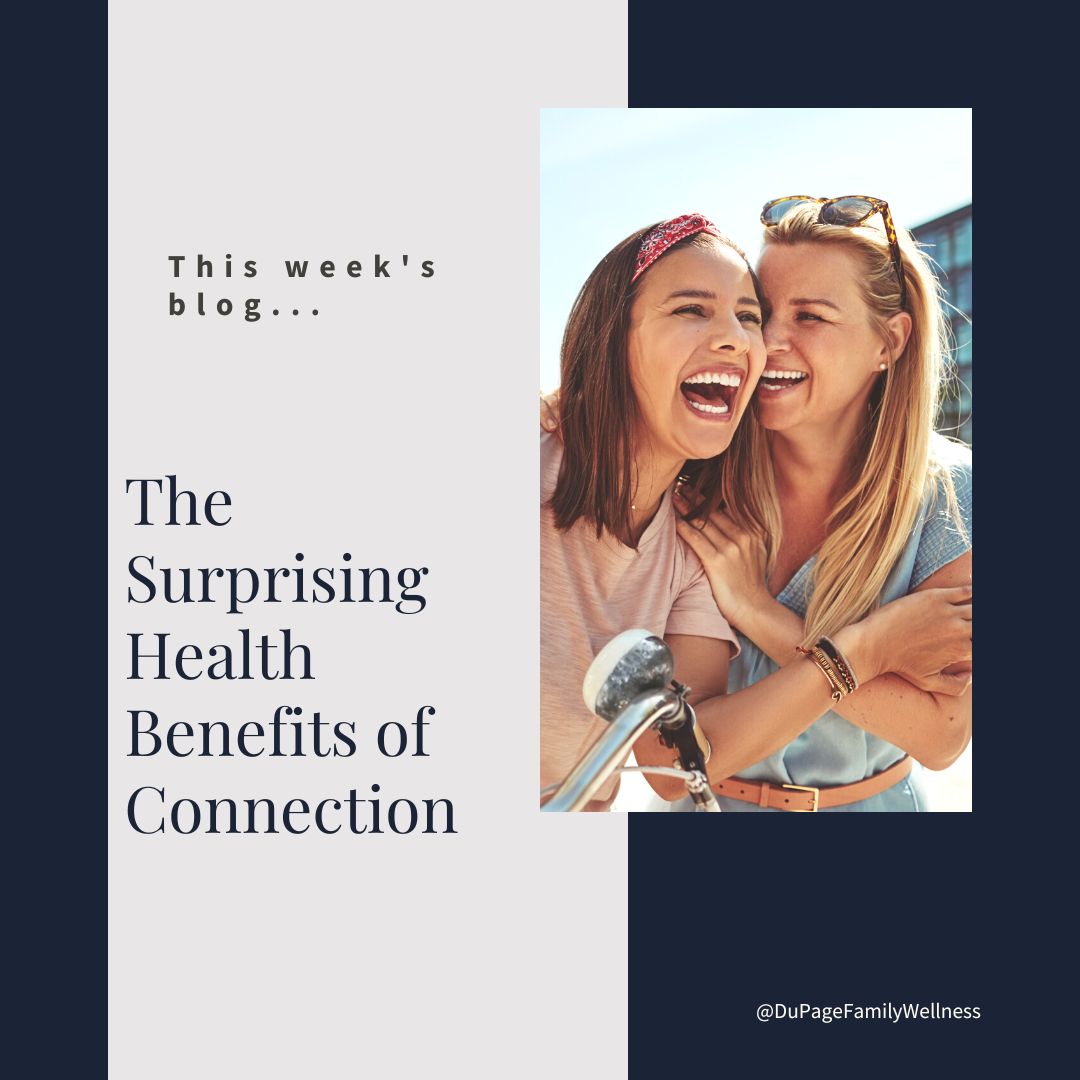 What comes to mind when you talk about healthy habits? Many people think about eating nutritious food, getting adequate movement, staying away from cigarettes, limiting alcohol, and possibly lowering stress levels.
What comes to mind when you talk about healthy habits? Many people think about eating nutritious food, getting adequate movement, staying away from cigarettes, limiting alcohol, and possibly lowering stress levels.
These are all important habits, but there is one habit that most people simply are not aware of. It might surprise you, but “enjoying social connections” is an important health habit!
Research is showing that social connections have a major impact on both our mental and physical health. While the impact of social connections on emotional wellbeing may be expected, the extensive impact on physical health may come as a surprise.
Let’s take a look at this dynamic so that you can lean into the benefits of social connections.
Social Connections Impact of Physical Health
The American Association for the Advancement of Science published a study that found “a lack of social connection is a greater detriment to health than obesity, smoking and high blood pressure.”
A lack of social connections has also been linked to inflammation and hypertension. It may be shocking, but strong social connections actually improve your immune system and lead to a 50% increased chance of longevity. The benefits are surprising, but true.
More research is needed to discover why social connections have such a dramatic impact on health, but the research is clear that social connections are extremely important if you want to live a long and healthy life.
What’s at the Core of Social Connection
So, what does it mean to be socially connected? Researcher and author Brene Brown defines connection “as the energy that exists between people when they feel seen, heard, and valued; when they can give and receive without judgment; and when they derive sustenance and strength from the relationship.”
Feeling seen, heard, and understood is enough to feel connected to another person weather near or far. Some people find it easier to build connections with people who live locally. Getting together for dinner, coffee, a game, or a walk can be fun ways to build relationships with those around you.
Connections, however, can be built from a distance as well. It may take a little more work to connect with friends who you don’t see regularly, but these relationships can be cultivated through phone calls, a text, zoom calls, emails, and even an old fashion letter.
Read more ...
 What if I told you that the foundation to being fit and strong was so easy a baby could do it? It would be hard to believe, but it's true. And babies everywhere are doing it!
What if I told you that the foundation to being fit and strong was so easy a baby could do it? It would be hard to believe, but it's true. And babies everywhere are doing it!
There are no baby exercise classes. Most babies learn how to move on their own. They tend to progress through movement the same way. They lift their head, rollover, crawl, and eventually start toddling around.
We typically don’t think about all that goes into their development, but it is amazing. If we look closely there is a lot we can learn from these little ones.
Let’s see what we can learn about movement through the amazing process these little ones go through as they develop their ability to move.
Functional Movement
Research has found that the way a baby moves is the most efficient way to move. But our modern world has taught us to move in ways that are unnatural. Many of us sit at our desks all day using a keyboard. We walk on treadmills instead of going for a walk.
But when we deviate from this type of movement we will not function at our best. It can lead to all sorts of pain in the body and restrict our movement. But there is a way to reestablish proper movement.
Functional Progression exercises are modeled after babies and how they move, organize movement patterns, and learn to stabilize. They allow us to reestablish movement patterns so that they become natural again.
Where to Begin - Diaphragmatic Breathing
Breathing properly is a foundational piece of movement, but most adults do not breathe in a natural way. In fact, a pilot study of 96 people in 2003 that assessed breathing mechanics found that only 25% of people breathe properly.
Using the wrong muscles to breathe can lead to a host of problems such as recurrent chronic fatigue, anxiety, panic attacks, as well as many musculoskeletal symptoms. But these things can be helped by learning to breathe like a baby again.
If you are trying to make changes in the way that you breathe, it will take some time. But you can do it if you try to focus on your breathing technique at least once an hour.
This video will show you what you should be doing to breathe properly. Remember, this is the foundation for all the other functional movement exercises, so don’t skip this important step.
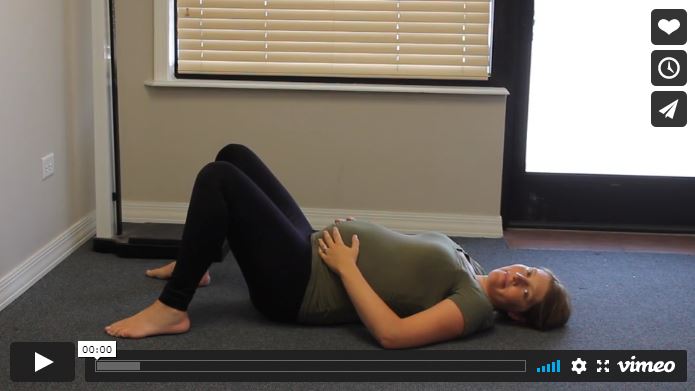
The Dead Bug
While you are learning to breathe properly again, you can also begin to engage your core in a specialized way.
Take a moment to think about a baby laying on its back. Where are his legs? Where are her hands? They are in the air moving about. It’s not a complicated or rigid movement, but it does engage the core in an important way.
The functional movement exercise that teaches you this is called the “dead bug.” It mimics that type of movement a baby makes naturally.

I am passionate about leading you to greater health! If you are interested in learning more about Functional Progression or would like to work with me to learn these movements give us a call 630-448-0255 to set up an appointment.
Dr. Jamie
 This time of year everyone is talking about gratitude. It’s great that we set time aside for it, but gratitude can be a healing practice all year round.
This time of year everyone is talking about gratitude. It’s great that we set time aside for it, but gratitude can be a healing practice all year round.

 It’s that time of year again. Daylight savings time is ending, and we will be rolling the clocks back this weekend. Many people are glad that they will enjoy an extra hour in their evening, while others look forward to an extra hour of sleep.
It’s that time of year again. Daylight savings time is ending, and we will be rolling the clocks back this weekend. Many people are glad that they will enjoy an extra hour in their evening, while others look forward to an extra hour of sleep. Your metabolism is the process of your body converting what you eat and drink into energy. The energy produced is responsible for everything from your movement to the automatic functions of the body.
Your metabolism is the process of your body converting what you eat and drink into energy. The energy produced is responsible for everything from your movement to the automatic functions of the body. Yes, it's true. I no longer drink plain water... and yet I am the most hydrated that I've been in my life.
Yes, it's true. I no longer drink plain water... and yet I am the most hydrated that I've been in my life.  What comes to mind when you talk about healthy habits? Many people think about eating nutritious food, getting adequate movement, staying away from cigarettes, limiting alcohol, and possibly lowering stress levels.
What comes to mind when you talk about healthy habits? Many people think about eating nutritious food, getting adequate movement, staying away from cigarettes, limiting alcohol, and possibly lowering stress levels.  What if I told you that the foundation to being fit and strong was so easy a baby could do it? It would be hard to believe, but it's true. And babies everywhere are doing it!
What if I told you that the foundation to being fit and strong was so easy a baby could do it? It would be hard to believe, but it's true. And babies everywhere are doing it!